5 Ways to Make Your Comeback After a Disappointing Season
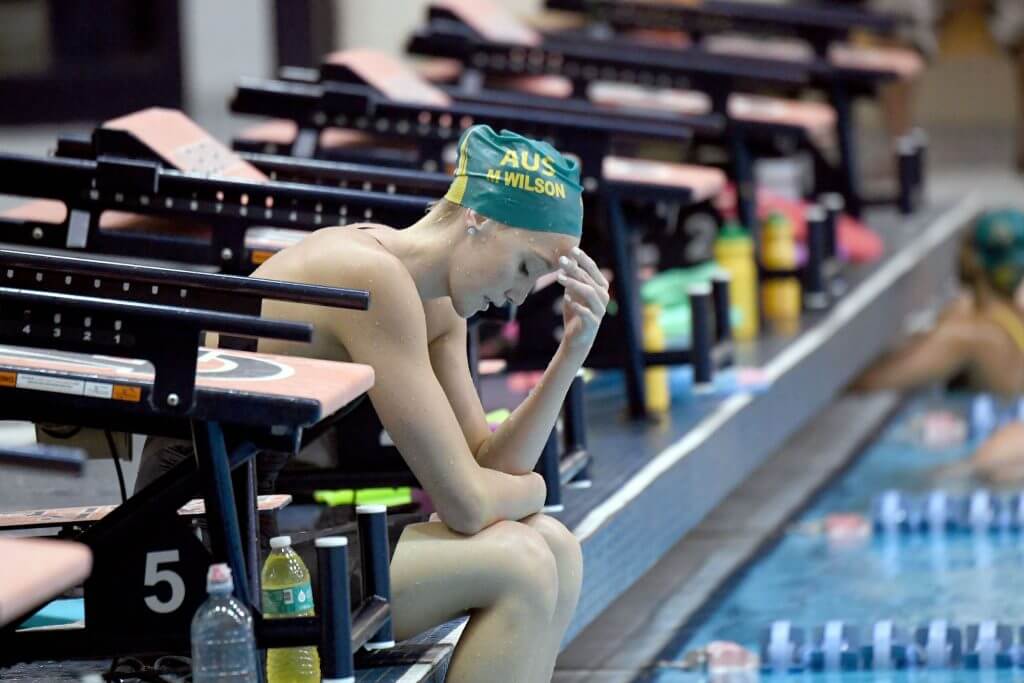
By Devin Javens, Swimming World College Intern.
Nothing is more devastating than wrapping up a disappointing season full of unaccomplished goals. This can leave you feeling as if none of your hard work has paid off, making you less than eager to dive right into the next season. These disappointments can leave you asking if this sport is even worth the time, effort, and energy if there’s no guarantee of success.
Unfortunately, feeling sorry for yourself leaves no positive effects, and to be brutally honest, it will do nothing to prevent you from having another unsuccessful season. Instead, using your shortcomings as a learning tool is key to bouncing back from disappointment. Those who are able to rebound after falling short of their goals are the most inspiring athletes. After all, everyone loves a good comeback story.
Here are five ways to make your comeback from a disappointing season:
1. Take a break.
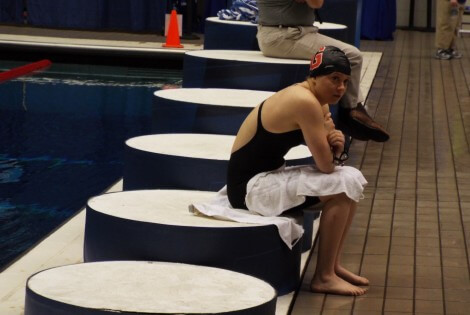
Photo Courtesy: Hayley Good
After disappointment, a break is sometimes necessary to reset and refocus. This could mean something different for each swimmer. For some, literally taking a couple months off from the sport could be exactly what’s needed. Let’s face it, the season is long, and taking some time away from the pool can be what’s necessary to help you recover. If you’re not in it mentally, chances are you won’t be motivated enough to push yourself in practice, which could lead to another disappointing season. Stepping away from swimming for awhile could serve as a nice physical and mental break. Eventually, you might even start to miss the sport, making your return to the pool that much more exciting.
However, “taking a break” from swimming doesn’t have to mean you literally stop swimming. Maybe take it light for a week. Throw a couple fun, easy practices in there to bring the fun back into swimming. Give yourself some time to enjoy the sport without having worrying about goals and expectations. Taking the pressure off of yourself can allow you to let go of the stresses that come with the will to perform well. Allow yourself to settle down again, reset and refocus.
2. Evaluate where it went wrong.
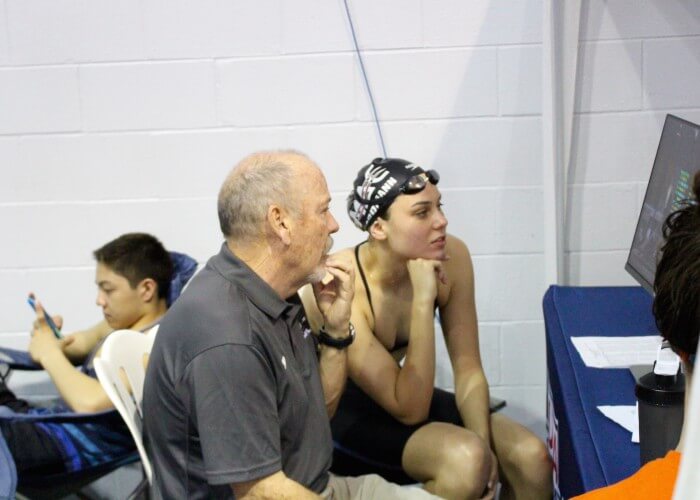
Photo Courtesy: Taylor Brien
Why was it that your season ended in disappointment rather than success? See what went wrong or what you did differently this past season. If it was just one bad race, that’s a bit easier to fix. What can you do differently to make your next race better? Were your turns off? Was your technique sloppy? Perhaps you need a different warm-up, race strategy or recovery routine. Try to pinpoint exactly what it was the prevented you from having the race you envisioned.
If it was a bad season all around, then you might have bigger issues on your hands. Perhaps you need to change your training inside and outside of the pool. Did you have enough endurance to finish your races? Did you have enough power to generate speed? Perhaps switching training groups could significantly change your performance this upcoming season. Mentality also plays a big role in performance in both practice and meets. If you just weren’t in the right mental state this season, then that may have been your problem. Figuring out the root of the issue can best prepare you for your next season.
3. What can you do to go faster?
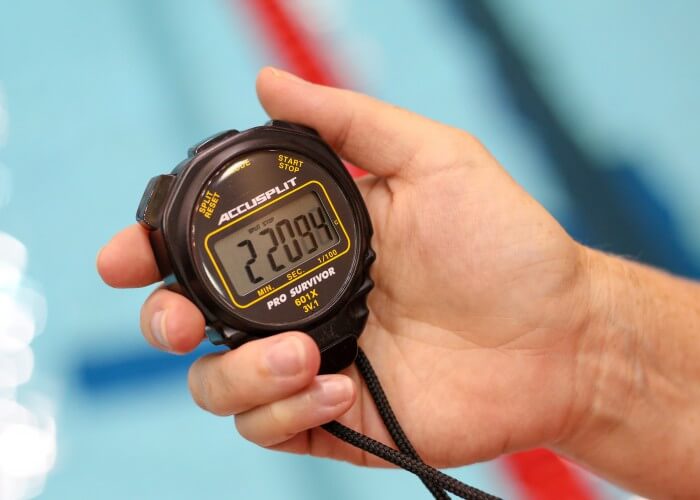
Photo Courtesy: Kevin Liles-USA TODAY Sports
Study, study, study! Studying up on all things swimming can help you find ways to improve. Swimming technique videos can tremendously help your strokes, making them more efficient. More efficiency equals faster swims. In addition to watching videos, taking videos of your own swims can help you see from an outside perspective what your strokes look like. This way, you are able to see what you’re doing right, what you’re doing wrong and what you can change or add to make your stroke better. Finding ways to make your stroke faster and working them into every single practice is a sure way of success.
4. Change your mindset.

Photo Courtesy: Linda Striggo
Head Coach Gregg Parini at Denison University emphasizes the potential of each new season: “Every year is a reset for the team. It’s a reset for the athletes. It’s a reset for the coaching staff.”
Like Parini says, with each new season comes a fresh start. This was the secret to success for the Denison Men’s Swim and Dive team upon earning the 2018 NCAA DIII National Championship title this past year after a disappointing third place finish at the 2017 National Championship. The key to the team’s success? Mindset. “In years past, the team got too caught up in what other teams were doing, what they were bringing to the table… all the while losing focus on their own preparation,” Parini says.
The Denison coaches knew a change in mindset needed to happen among all members of the team: “We never spoke about winning… but we did spend a lot of time talking about bringing a high level of integrity and honesty to their preparation and racing.”
Parini emphasized the importance of only focusing on what you can control – yourself. “The motivation for last year’s team wasn’t necessarily ‘to win’ but, rather, to be their best,” Parini comments. “Our main competition is ourselves – focusing on beating others can be motivating, but that really isn’t sustainable on a day-to-day basis.”
5. Believe in yourself.
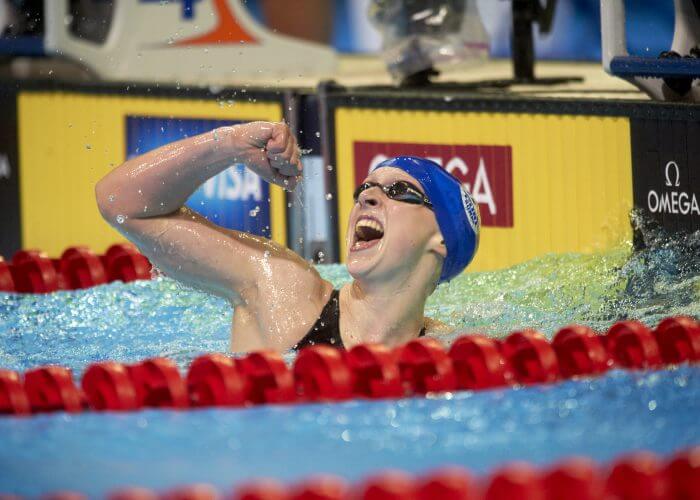
Photo Courtesy: Heinz Kluetmeier
The biggest key to this step is to stop comparing yourself to others. Worrying about other swimmers will only distract you from improving yourself. What do you need to do to make yourself a better swimmer?
Coming off of a rough season can cause some nervousness for what’s ahead. Don’t let fears and doubts stop you from making a comeback this season. Use your disappointments and shortcomings to your advantage. Don’t let it break you. Instead, let it motivate you to work even harder and redeem yourself. Prove that you are a someone who can’t be held back from a bad season.
All commentaries are the opinion of the author and do not necessarily reflect the views of Swimming World Magazine nor its staff.




Donia Waleed
Artūrs Līcītis
Karen Weber